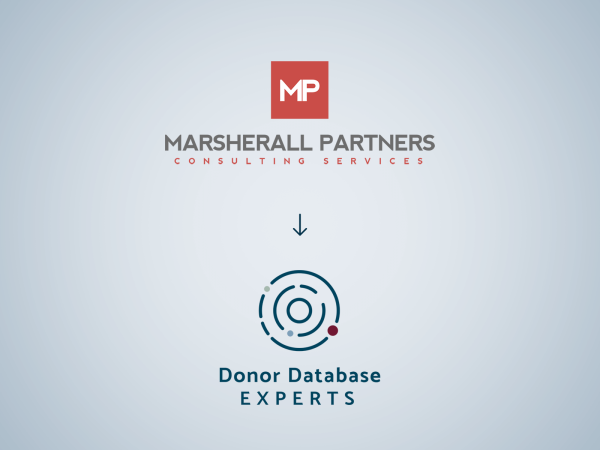What Is a Nonprofit Donor Database?
How do nonprofits effectively manage relationships with hundreds—or even thousands—of contributors? That’s where a nonprofit donor database comes in.
What is a Donor Database?
A donor database is a centralized system where nonprofits track donor information, contributions, and engagement history. Think of it as a digital Rolodex combined with powerful analytic capabilities. From tracking donation history to identifying trends, this database serves as the backbone for managing donor relationships effectively.
For nonprofits, a donor database goes beyond basic contact information like names, addresses, and phone numbers. It can include details such as:
- Donation amounts and frequency
- Preferred communication channels
- Volunteer history
- Event participation
- Notes on personal preferences or special interactions
By compiling this data in one place, the database empowers organizations to build targeted engagement strategies and streamline their fundraising efforts.

The History of Tracking Nonprofit Donations
The concept of tracking nonprofit donations has come a long way. Decades ago, nonprofits relied on handwritten ledgers and manual filing systems to track contributions and donor information. While this system worked for grassroots organizations, larger nonprofits often found themselves bogged down by paperwork and missed details.
With the advent of computers in the 1980s, software programs began appearing to help nonprofits digitize records. These early donor tracking systems were basic but instrumental in improving efficiency. Fast forward to today, and we now have donor databases built with advanced technologies like cloud storage and artificial intelligence.
Modern donor databases for nonprofits don’t just store information—they help nonprofits analyze data to make informed decisions. These insights are instrumental in optimizing fundraising campaigns and deepening relationships with supporters.

The Benefits of Using a Donor Database
Investing in a donor database delivers several tangible and intangible benefits for nonprofits:
- Streamlined Donor Management: Keeping track of donor information, communication logs, and giving histories in one centralized location eliminates the chaos of managing spreadsheets or separate systems.
- Improved Fundraising Efficiency: Donor databases can segment donors based on giving amounts, interests, and location. This allows nonprofits to create highly targeted campaigns rather than a one-size-fits-all approach.
- Enhancing Donor Retention: Tracking donor engagement levels helps you identify supporters at risk of disengaging. With a donor database, you can create strategies to re-engage them, whether through personalized thank-you messages or exclusive events.
- Data-Driven Decision Making: Today’s advanced donor databases analyze patterns and trends in your data. These insights can inform everything from campaign messaging to deciding when to launch your next fundraiser.
- Better Compliance: Many donor databases assist with compliance by keeping records of donations and receipts. This is invaluable during audits or when issuing year-end tax documents.

How to Use a Donor Database to Connect with Your Donors
A donor database is not just a storage system—it’s a tool for relationship-building.
Here are some best practices to use your donor database to its full potential:
Personalized Communication
Use the database to segment donors by criteria like average giving amount or preferred communication method. Then, send tailored messages, such as an email campaign celebrating their contributions or a handwritten thank-you note for major donors.
Recognize Milestones
Track important dates, like a donor’s first gift anniversary or their birthday, and celebrate these milestones to strengthen loyalty.
Event Invitations
Easily identify donors who have attended past events or expressed interest in specific causes. Use this data to send personalized invites to your future fundraisers.
Feedback Collection
Use the database to track feedback and notes from donors. Did someone mention they’d love more updates on how their contributions are making a difference? You can follow up with impact reports tailored to their interests.
Features to Look for in Donor Databases for Nonprofits
When selecting a donor database, keep your nonprofit’s needs and growth trajectory in mind.
Here are the key features to prioritize:
User-Friendly Interface
Choose a database that’s easy to use for your team, regardless of technical expertise. A complex system can lead to frustration and underutilization.
Customizable Reporting
The ability to generate reports that align with your organization’s goals is crucial. Look for systems that offer flexible reporting templates.
Integration Capabilities
Your donor database should integrate seamlessly with other software tools your nonprofit uses, such as email marketing platforms or accounting software.
Cloud-Based Access
A cloud-based database ensures your data is accessible anytime, anywhere, and offers real-time collaboration for remote teams.
Scalability
Opt for a platform that grows with your nonprofit. For example, you may need additional features like grant tracking or event management as your organization expands.
Security Measures
Given the sensitive nature of donor data, prioritize systems with robust security features, including encryption and regular backups.
Outsourcing Donor Database Management
While donor databases are a game-changer, managing one can be time-consuming, especially for smaller nonprofits with limited resources.
That’s where outsourcing comes in.
Outsourcing donor database management means partnering with experts who handle data entry, analysis, and reporting for you. This approach has several advantages:
- Expertise: Professionals can ensure you’re leveraging your database to its full potential.
- Time-Saving: Your team can dedicate more hours to advancing your mission instead of administrative tasks.
- Data Accuracy: Reduce the risk of errors through trained specialists.
- Cost-Effective: Outsourcing often costs less than hiring and training a full-time staff member.
At Donor Database Experts, we specialize in helping nonprofits analyze and leverage their data to create meaningful, data-driven solutions. From managing donor databases to implementing best practices, our team helps nonprofits make a bigger impact.

Leverage Donor Databases for Greater Impact
A donor database is not just a tool—it’s an investment in your nonprofit’s future. By streamlining donor management, improving fundraising efforts, and fostering impactful connections, it can transform how your organization operates.
If you’re ready to take full advantage of donor databases for nonprofits but don’t know where to start, Donor Database Experts is here to help. Together, we can bring industry best practices to your team, ensuring you reach your community impact goals.
Contact us today to learn how we can tailor data solutions for your nonprofit’s unique needs.
New Name - Same Mission. Marsherall Partners is now Donor Database Experts (DDX). We’ve updated our brand to better reflect our sole focus on donor database management for nonprofits—same trusted team, same mission, clearer identity.

